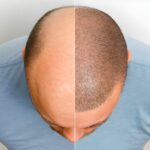Back in the day, I used to spend a fair amount of time keeping up with nutrition research on Healthy Eating. I could easily spend hours on sites like http://www.mercola.com, reading about the latest studies on most everything related to holistic health.
That was before I discovered eating psychology and started a business. These days, I tend to spend my learning time immersed in the “softer” realms of psychology and personal development. However, last week I came across an article about a recent nutrition study that was so fascinating and in alignment with what I believe that I read it, re-read it, and then read it aloud to my husband.
The study, which was published in the journal Cell last week, is a potential game-changer in the way we approach healthy eating. If you’re at all familiar with the world of diets and nutrition, you’ve most likely heard of the glycemic index, a measure of how different foods affect our blood sugar. It was developed decades ago and has been assumed to be a fixed number; it’s the basis for many diets and healthy eating plans. The glycemic index assumes that if you eat a cookie and I eat a cookie, we will both experience a similar spike in blood sugar.
The future of healthy eating
However, the study found that this is not the case; instead, its’ results show that there are striking differences between people’s responses to identical meals. The researchers found that a food that caused huge blood-sugar spikes for some people resulted in barely-measurable blips for others. (Keeping blood sugar relatively stable is important for the prevention of diabetes and for overall health).
What causes these differences? The study linked it to a variety of factors (137, to be precise), including age, body mass index, genes, lifestyle choices, gut bacteria, and even the meals we’ve recently eaten.
Why do I find this so fascinating and important? Simple: it means that there is no ONE best way to eat. What’s healthy for you may not be healthy for me, and vice versa. As such, generalized advice about healthy eating may often be ineffective. Instead, a personalized approach – one that honors the individuality of each of our bodies – is where the future of nutrition is headed.
It will likely be a while before we have access to personalized data on the exact foods that will make each of us feel our best – so what do we do in the meantime?
We learn to tap into our inner nutritionist. Our bodies are providing constant feedback on what works and what doesn’t; all we have to do is listen to it. Is this harder than following an expert’s plan? Without a doubt. But once we learn to tune in to the data our bodies give us every day, we are empowered in a way we never can be when we place all of our trust in someone outside of ourselves.
(To be clear, I’m not saying that nutritionists are useless. Many nutritionists are awesome and can be extremely helpful when they combine their nutrition knowledge with the information you bring them about what works for your body and your preferences. But do you see the difference between being 100% dependent on outside sources to “fix” you and empowering yourself with the knowledge of what’s best for YOUR BODY?)
In my upcoming guide to overcoming emotional eating, I discuss how the mainstream nutrition world is failing us – and how it will continue to fail us until it recognizes that the mind-body component is an essential piece to the puzzle. Here’s hoping that the future of nutrition takes into account ALL of who we are as human beings, from our individual biology to our individual psychology.
Author: Annette Sloan
Annette Sloan is a health coach and award-winning educator who works with teen girls and women to help them take a wholehearted approach to health, self-acceptance and positive body image. She’s passionate about helping the current and next generation of women embrace being beautiful inside and out, so they’re confident and courageous. Annette is a certified mind-body-nutrition coach and speaker with more than 13 years of experience in her field. Her vision is of a world in which all girls and women believe that they are worthy, exactly as they are.











